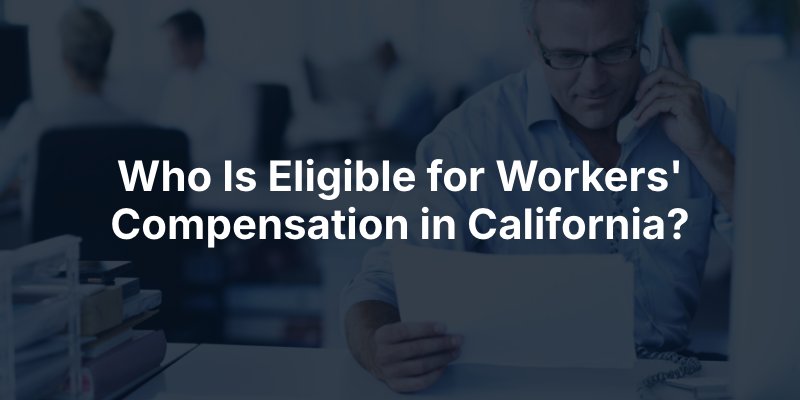Workers’ compensation is a no-fault insurance system designed to provide benefits to employees who suffer work-related injuries or illnesses. However, not all claims are automatically eligible for compensation.
Contact our Orange County workers’ compensation attorneys to determine if you are eligible for benefits. Schedule your free consultation today by calling (949) 379-6250.
California law mandates that all employers carry workers’ compensation insurance, and nearly all employees are covered under this system. Eligibility is determined by the following factors:

To qualify for workers’ compensation benefits, the injured individual must be classified as an employee. Independent contractors, freelancers, and volunteers are generally not eligible unless they meet specific exceptions under California law. For instance, misclassified workers may still qualify for benefits if they can demonstrate they were effectively functioning as employees under the law.
The injury or illness must arise out of and occur in the course of employment. This means it must be directly related to job duties or work conditions. Here are a few examples of qualifying injuries:
Employees must report the injury or illness to their employer within 30 days of its occurrence. Failure to report within this timeframe could jeopardize eligibility for benefits unless exceptional circumstances apply.
The individual must be actively employed when the injury or illness occurs. Injuries sustained while off-duty or during non-work-related activities are generally not covered.
While California’s workers’ compensation laws are broad, some injuries and circumstances are excluded from coverage, including:
If an employee intentionally causes their own injury, benefits may be denied.
Injuries sustained while under the influence of drugs or alcohol may disqualify an employee from benefits.
Injuries caused by horseplay or violating workplace safety rules may not qualify.
Notify your employer immediately after an injury or diagnosis. Employers are required to provide the DWC 1 Claim Form within one working day of receiving notice.
Obtain medical evaluation and treatment through an approved provider designated by your employer or insurance carrier.
Complete and submit the DWC 1 Claim Form to formally initiate the workers’ compensation process.
Insurance carriers may investigate the claim to verify the injury or illness and its connection to the workplace. Provide any requested documentation or evidence.
Some workers may face challenges in proving eligibility, such as disputes over whether the injury was work-related or whether they were properly classified as employees. These issues commonly arise due to:
Navigating the workers’ compensation system can be complex, especially when eligibility is contested. An experienced Orange County employment law attorney can assist by:
To arrange a free consultation with a skilled workers’ comp attorney today, call (949) 379-6250 or contact Aegis Law Firm online.